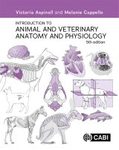About this book
Integrated pest management (IPM) is a sustainable approach to manage pests through biological, cultural, physical and chemical means in order to minimize economic and environmental injury caused by such pests. Any comprehensive IPM programme requires an understanding of the ecological relationships between crops, pests, natural enemies and the environment. This book presents a series of review chapters on ecologically-based IPM. Topics covered range from the ecological effects of chemical control practices to the ecology of predator-prey and parasitoid-host systems.
Contents
* Ecologically-based Integrated Pest Management Present Concept and New Solutions, O Koul and G W Cuperus; * Ecological Management of Plant Pathogens, B Jacobson, Montana State University, USA; * Ecological Management of Agricultural Weeds, R G Hartzler, College of Agriculture, Iowa State University, USA and D D Buhler, College of Agriculture and Natural Resources, Michigan, USA; * Role of Cover Crops in the Management of Arthropod Pests in Orchards, M W Smith and P G Mulder Jr., both at Oklahoma State University, USA; * Intercropping for Pest Management: The Ecological Concept, V Langer, Royal Veterinary and Agricultural University, Denmark, J Kinane and M Lyngkjaer, both at Riso National Laboratory, Plant Research Department, Roskilde, Denmark; * Ecological Effects of Chemical Control Practices: The Environmental Perspective, R G Luttrell, University of Arkansas, USA; * Sociology in Integrated Pest Management, J Baumgartner and A O Pala, both at ICIPE, Kenya and P Trematerra, Universita degli Studi del Molise, Campobasso, Italy; * Economic Aspects of Ecologically-based Pest Management, G W Norton, Virginia Tech, USA; * Economics of Host Plant Resistance in IPM Systems, P Kenkel, Oklahoma State University, USA; * Integrated Pest Management with the Sterile Insect Technique, D B Thomas, USDA, USA; * Ecology of Predator-Prey and Parasitoid-Host Systems: Its Role in IPM, G M Gurr, Pest Biology and Management Group, The University of Sydney, Australia, P W Price, Northern Arizona University, USA, M Urrutia, M Wade and S D Wratten, all at National Centre for Advanced Bio-Protection Technologies, Canterbury, New Zealand and A T Simmons, Pest Biology and Management Group, The University of Sydney, Australia; * Ecological Considerations for the Use of Entomopathogens in IPM, L C Lewis, USDA-ARS Corn Insects and Crop Genetics Research Unit, Iowa State University, USA; * Role of Biotechnological Advances in Shaping the; * Future of IPM, A. M. Shelton and R. R. Bellinder both at Cornell University, New York, USA; * Grower Perspectives on Areawide Wheat Integrated Pest Management in the Southern USA Great Plains, S P Keenan, K L Giles and T A Roye, all at Oklahoma State University, USA, N C Elliott and D R Porter, both at USDA-ARS, Plant Science and Water Conservation Laboratory, Oklahoma, USA, P A Burgener and D A Christian, both at The University of Nebraska Panhandle Research & Extension Center. * Integrated Pest Management of Rice: Ecological Concepts, G C Jahn, Y Chen, and A T Barrion, all at IRRI, Philippines and J A Litsinger, California, USA; * Ecologically-based IPM in Cotton, D W Spurgeon, USDA-ARS, Texas, USA; * Ecological Implications for Post-harvest IPM of Grain and Grain Based Products, J F Campbell and F Arthur, both at USDA-ARS, Kansas, USA; * Diffusion of IPM Programs in Commercial Agriculture: Concepts and Constraints, T W Fuchs, Texas Cooperative Extension. USA.
Customer Reviews
Biography
O. Koul is Insect Biopesticide Research Centre, Jalandhar, India, and G W Cuperus, is from Oklahoma State University, USA


































